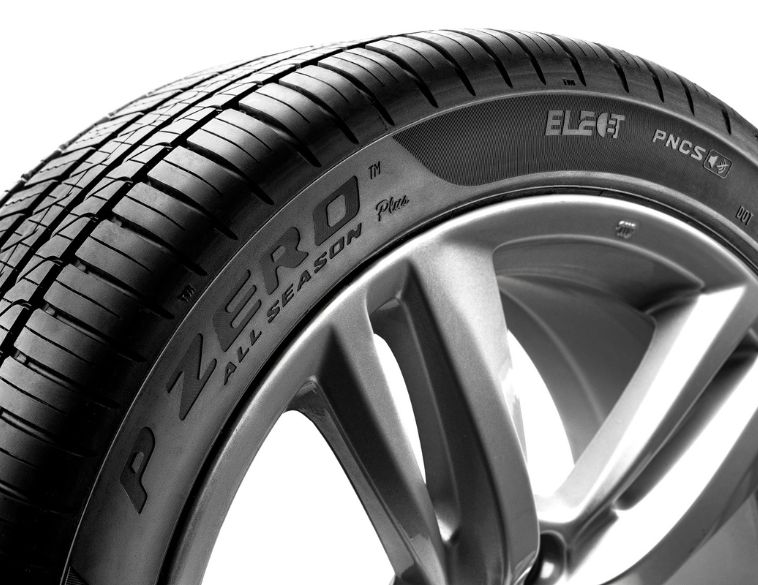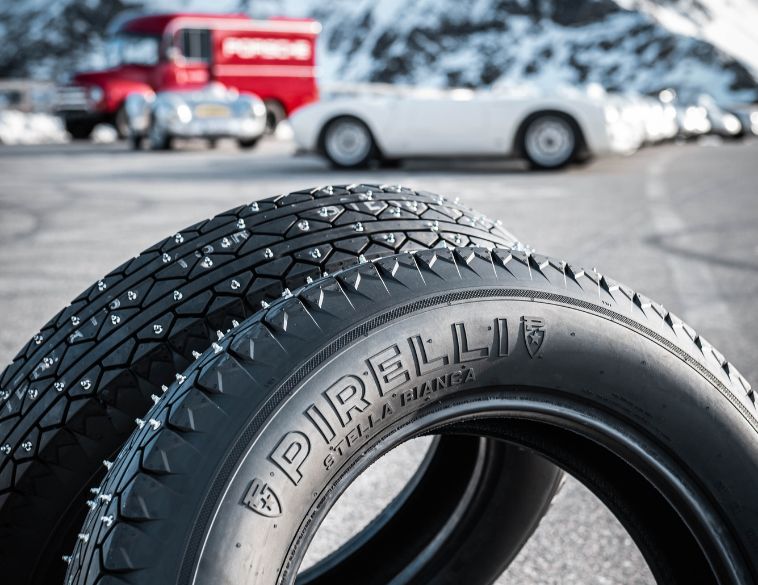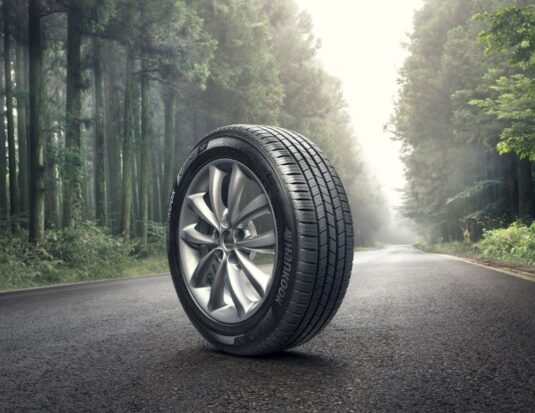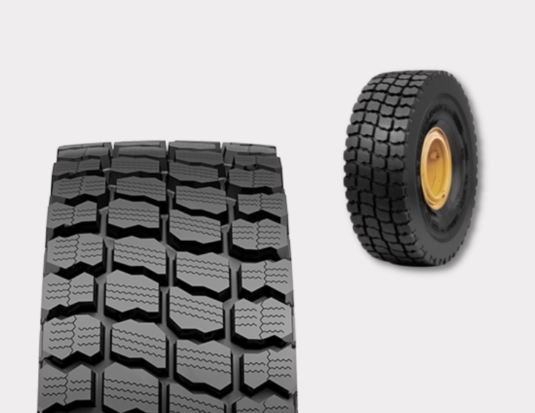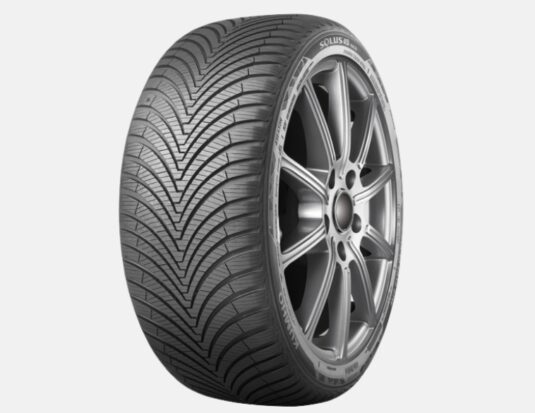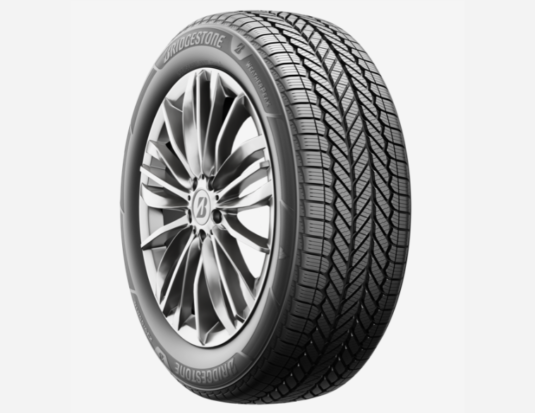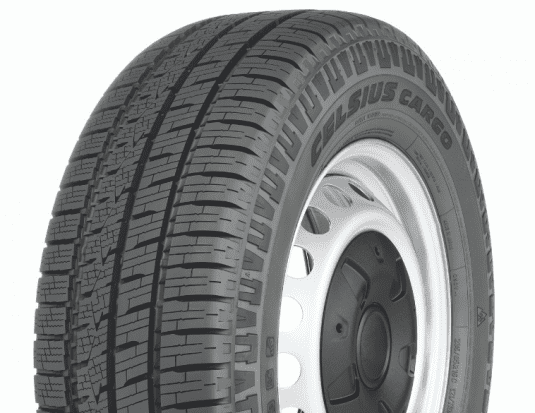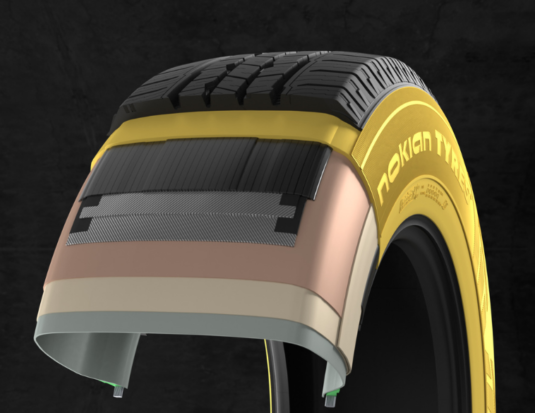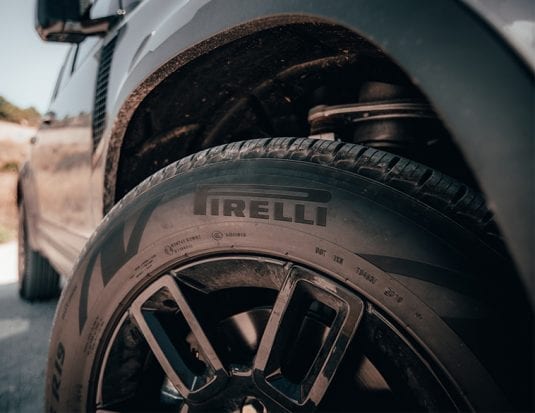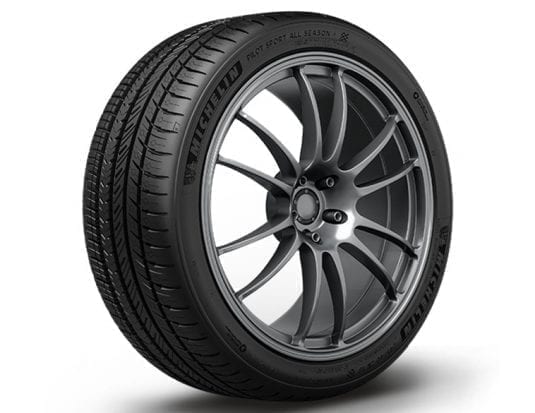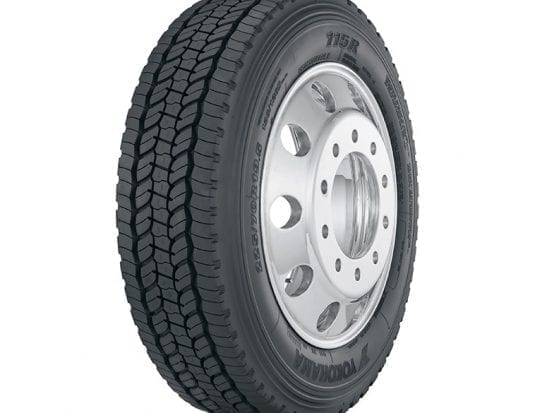All-season tires
All-season tires are popular among car fleets, they offer a practical and economical solution for year-round use. However, it is important to understand that all weather tires do not guarantee increased safety on the road, especially in the harsh Canadian winters.
Types of all-season tires
There are different tire brands and types of all-season tires available on the market, each offering specific advantages and disadvantages. Traditional all weather tires are designed to provide balanced performance over all seasons, but they are not approved for winter conditions and do not guarantee a high level of road safety in winter. You can identify this type of tire thanks to the ‘four-season tire logo’ visible on their side.You must choose the best all-season tire that suits your clients’ needs and budget. But be warned that all-season tires are not necessarily the ideal year-round solution.
Truck and SUV all season vs snow tires
All-weather truck tires are designed to provide reliable performance in a variety of weather conditions, including rain, snow, and mud, while also delivering good handling and traction on both wet and dry roads. The best all-season truck tires in Canada or the best all-season tires for SUV, are those that offer reliable performance in different weather conditions and have a long tread life. When it comes to navigating snow-covered roads, all-season tires may not provide the same level of performance and safety as dedicated snow tires due to their rubber compound. The high performance all-season tires are designed to provide better grip and performance on the road, but they are more expensive and require more frequent replacement. The low rolling resistance all-season tires are designed to reduce fuel consumption, but they may have a shorter lifespan and less satisfactory performance in winter. If you’re looking for a versatile tire option, winter-certified all-season tires are a great choice. They are designed with a specialized tread compound that provides enhanced grip in winter weather conditions, such as snow and slush.
The disadvantages of all weather tires
An all-season tire is not designed for optimal winter performance. All-season tires may seem like a practical solution, however, they are not recommended for Canadian winters. Snowstorms and ice can make the roads particularly dangerous, and having the proper tires is of utmost importance in guaranteeing the well-being and protection of all individuals on the road. It is strongly recommended to use winter-approved 4-season tires for better snow traction and consistent handling. The lifespan of an all-season tire can also be more limited than other types of tires.
Advantages of all-season tires
Tires approved for all seasons offer certain advantages, but it is important to understand that these tires are not a magic bullet for all weather conditions. The main benefits of all-season tires are their versatility, that is, their ability to offer grip on different types of roads and weather conditions. All-season tires are also considered a practical and cost-effective option for vehicle owners or businesses that need to manage a car fleet. Their use avoids having to regularly change tires depending on the season, which can be costly and tedious. All-season tires also reduce maintenance costs related to the storage of summer or winter tires, as they can be used year-round. This saves space in the garage that would be used for storing summer tires or winter tires. This type of tire can be considered a good value for money. Since customers will unlikely rotate their wheels seasonally, there will be fewer needs for preventive maintenance checks. It is your responsibility to properly educate them on the importance and benefits of having their vehicle inspected periodically. However, it is worth mentioning that these tires are not designed for severe snowstorms or icy roads. They can offer grip in light snow, but not for extreme winter conditions.
Difference between a winter tire and an all-season tire
Many wonder what is the difference between a winter tire and an all-season tire. The composition, technology utilized in production, and tread design of tires play crucial roles in determining the differences between winter and all-season tires. Winter tires are usually made with a special compound that remains flexible at lower temperatures, allowing better grip on snow and ice. Their tire design features sipes that significantly enhance traction in harsh winter conditions, outperforming traditional all-season mud and snow tires.
Difference between all season and all weather tires
All season vs all weather tires are often confused for one another, but they have distinct differences that make them suitable for different driving conditions. All-weather tires are designed to provide adequate traction and handling in a range of weather conditions, including light snow and rain. On the other hand, all-season tires are engineered for year-round use, providing some grip in both winter and summer weather. When it comes to all-terrain tires, these are designed for off-road and rugged terrain, not for all-weather conditions. It’s crucial to understand the difference between all-season and all-weather tires, as well as winter and summer tires, before making a decision. The use of all-season tires in Canada may not be the best solution, due to the harsh winters, which can make the roads dangerous. These tires offer a compromise between summer and winter tires for drivers looking to avoid the cost of changing tires. When comparing summer tires vs all season or, winter tires vs all season, it’s important to note that winter tires are specifically designed for cold weather, summer tires are optimized for warm temperatures, and winter rated all season tires offer a balance between the two, but may not perform as effectively as dedicated winter or summer tires. It is important to choose the best all-season tires for the vehicle to optimize performance and safety on the road. It is recommended to consult expert columns before choosing all-season tires or winter tires to make an informed decision.

